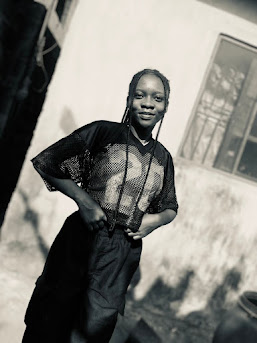Early Life and Education
Carlo Maria Viganò was born on January 16, 1941, in Varese, Italy, into a wealthy family. He was ordained as a priest on March 24, 1968, in the Diocese of Pavia, Italy, and pursued advanced studies, earning doctorates in both canon law and civil law.
Diplomatic Career
Entering the Vatican's diplomatic service in 1973, Viganò served in various roles, including as an attaché in Iraq and Kuwait and later at the Apostolic Nunciature in Great Britain. From 1978 to 1989, he worked at the Secretariat of State in Vatican City and subsequently served as the Holy See's permanent observer at the Council of Europe in Strasbourg, France.
In 1992, Viganò was appointed Archbishop by Pope John Paul II and served as the Apostolic Nuncio to Nigeria until 1998. He continued his diplomatic career within the Vatican's Secretariat of State and later as the Secretary-General of the Governorate of Vatican City State from 2009 to 2011.
Controversies and Criticism
Archbishop Viganò gained significant attention for his outspoken criticism of Pope Francis and his rejection of the Second Vatican Council. His public criticisms intensified over the years, leading to his canonical charge of schism in June 2024 by the Holy See. The following month, he was officially excommunicated for his refusal to reconcile with the Catholic Church.
Vatileaks Scandal and Accusations
In January 2012, Archbishop Viganò's letters, originally written in 2011 and later published by an Italian television station, ignited what became known as the "Vatileaks" scandal. This event exposed alleged corruption and misconduct among high-ranking Vatican officials, creating widespread controversy and investigations.
In August 2018, Archbishop Viganò released an 11-page letter accusing numerous church officials, including Pope Francis, of covering up sexual abuse allegations against former Cardinal Theodore McCarrick. These accusations were unprecedented in modern Catholic Church history, sparking intense debate and calls for accountability within the Church hierarchy.
Archbishop Carlo Maria Viganò remains a polarizing figure within the Catholic Church, remembered for his diplomatic career and his controversial stance against Pope Francis and Vatican reforms. His actions and statements continue to influence discussions on transparency, accountability, and doctrinal adherence within the Church.
FAQs
1. What is Archbishop Carlo Maria Viganò age?
- Archbishop Viganò was born on January 16, 1941, making him 83 years old as of 2024.
2. Why was Archbishop Viganò excommunicated?
- He was excommunicated by the Vatican for the canonical crime of schism, which involves breaking away from the Catholic Church.
3. What role did Archbishop Viganò play in the Vatican's diplomatic service?
- He served as Apostolic Nuncio to the United States from 2011 to 2016 and held various diplomatic posts before that.
4. What is the Vatileaks scandal?
- It refers to the release of confidential documents from the Vatican, including letters by Archbishop Viganò, which exposed alleged corruption and misconduct among Vatican officials.
5. Why did Archbishop Viganò criticize Pope Francis?
- He disagreed with Pope Francis' leadership and reforms, particularly regarding doctrinal issues and the handling of abuse scandals within the Church.
6. What accusations did Archbishop Viganò make against Pope Francis?
- He accused Pope Francis of covering up sexual abuse allegations against former Cardinal Theodore McCarrick and of neglecting sanctions against him.
7. What is Archbishop Viganò stance on the Second Vatican Council?
- He has publicly rejected the teachings and reforms of the Second Vatican Council (1962–65), which are pivotal in modern Catholic Church doctrine.
8. What diplomatic roles did Archbishop Viganò hold before his controversy?
- He served as Apostolic Nuncio to Nigeria and held various positions within the Vatican's Secretariat of State.
9. Why did Archbishop Viganò resign from his role as Apostolic Nuncio to the United States?
- He retired from this position in 2016, citing reasons related to age and health.
10. Did Archbishop Viganò face any disciplinary actions before his excommunication?
- Yes, he faced criticism and canonical charges from the Holy See for his public dissent and actions against the Church's unity.
11. How did Archbishop Viganò actions impact the Catholic Church?
- His criticisms and accusations sparked debates on transparency, accountability, and doctrinal integrity within the Church.
12. What is the significance of Archbishop Viganò excommunication?
- It marked a rare instance of excommunication of a high-ranking church official for actions deemed to threaten the unity of the Catholic Church.
13. Was Archbishop Viganò excommunication unprecedented?
- While excommunications of bishops and archbishops are rare, Archbishop Viganò case drew attention due to its high-profile nature and the issues at stake.
14. How did Archbishop Viganò background influence his career?
- Coming from a wealthy family in Italy, his educational and diplomatic background shaped his rise within the Vatican's hierarchy and his subsequent controversies.
15. What is Archbishop Viganò legacy within the Catholic Church?
- His legacy is one of controversy, marked by his critiques of Pope Francis, involvement in the Vatileaks scandal, and ultimate excommunication, influencing ongoing discussions on reform and tradition within the Church.
_1.jpeg)







0 Comments